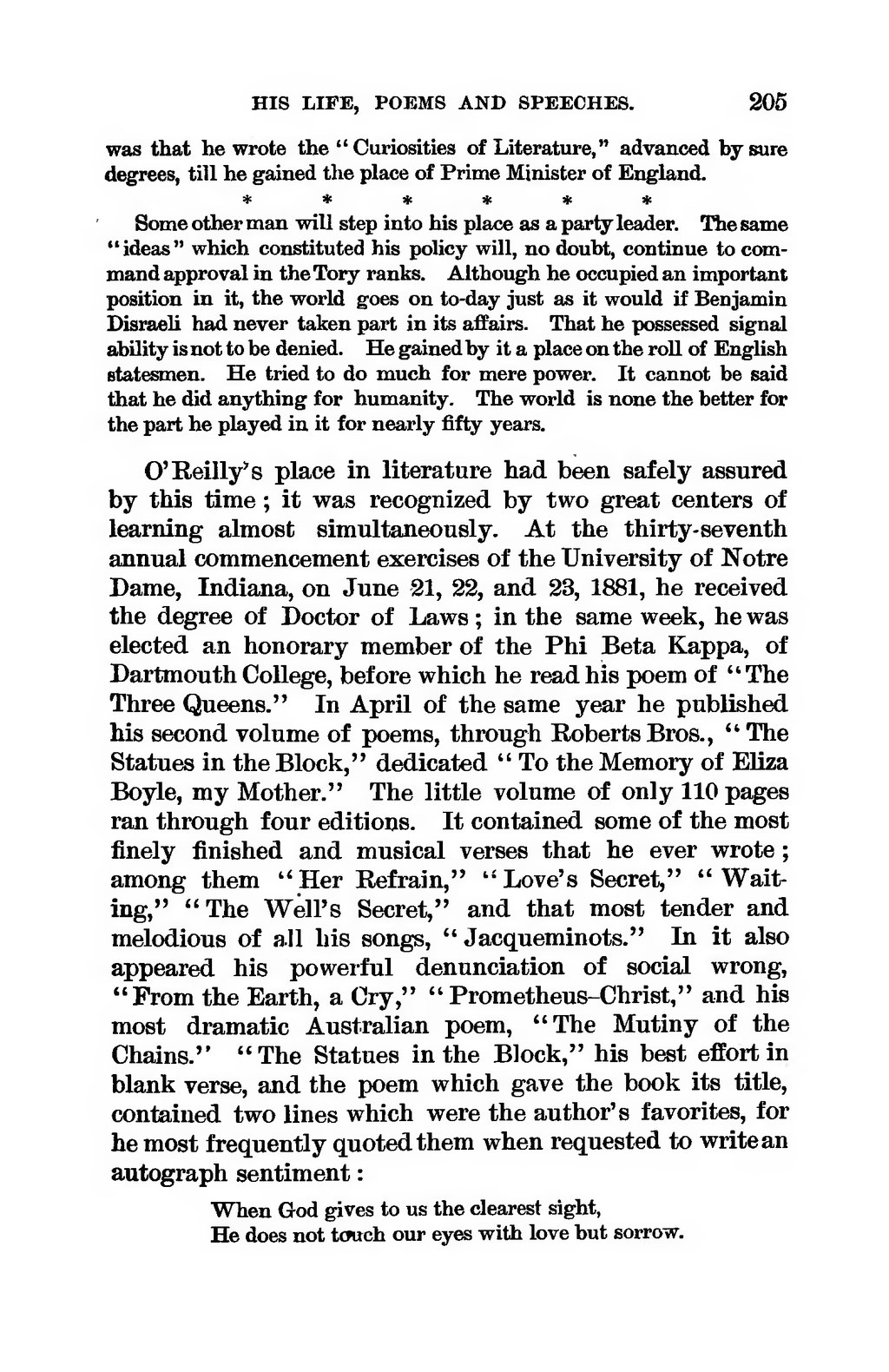was that he wrote the "Curiosities of Literature," advanced by sure degrees, till he gained the place of Prime Minister of England.
******
Some other man will step into his place as a party leader. The same "ideas" which constituted his policy will, no doubt, continue to command approval in the Tory ranks. Although he occupied an important position in it, the world goes on to-day just as it would if Benjamin Disraeli had never taken part in its affairs. That he possessed signal ability is not to be denied. He gained by it a place on the roll of English statesmen. He tried to do much for mere power. It cannot be said that he did anything for humanity. The world is none the better for the part he played in it for nearly fifty years.O'Reilly's place in literature had been safely assured by this time; it was recognized by two great centers of learning almost simultaneously. At the thirty-seventh annual commencement exercises of the University of Notre Dame, Indiana, on June 21, 22, and 23, 1881, he received the degree of Doctor of Laws; in the same week, he was elected an honorary member of the Phi Beta Kappa, of Dartmouth College, before which he read his poem of "The Three Queens." In April of the same year he published his second volume of poems, through Roberts Bros., "The Statues in the Block," dedicated "To the Memory of Eliza Boyle, my Mother." The little volume of only 110 pages ran through four editions. It contained some of the most finely finished and musical verses that he ever wrote; among them "Her Refrain," "Love's Secret," "Waiting," "The Well's Secret," and that most tender and melodious of all his songs, "Jacqueminots." In it also appeared his powerful denunciation of social wrong, "From the Earth, a Cry," "Prometheus-Christ," and his most dramatic Australian poem, "The Mutiny of the Chains." "The Statues in the Block," his best effort in blank verse, and the poem which gave the book its title, contained two lines which were the author's favorites, for he most frequently quoted them when requested to write an autograph sentiment:
When God gives to us the clearest sight,
He does not teach our eyes with love but sorrow.
